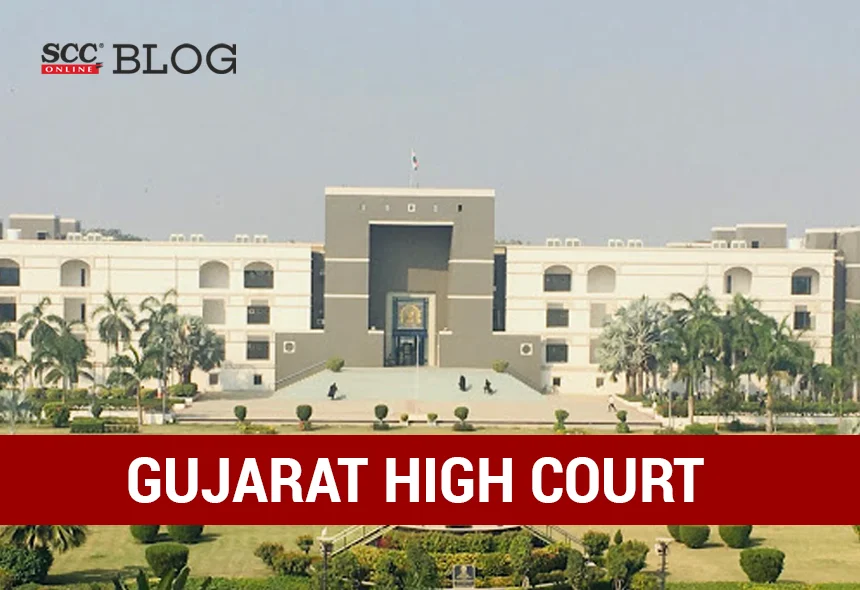Gujarat High Court: In a writ petition filed under Article 226 read with Article 21 of the Constitution of India, wherein the convict’s wife was seeking his release on parole leave for a period of 60 days, the Single Bench of Nisha M. Thakore, J., granted the parole leave and said that release of prisoner on parole would not amount suspension of sentence.
Factual Matrix
The convict was awarded life imprisonment by the Additional Sessions Judge (‘ASG’), Godhra for the offences under Section 143, 147, 148, 302, 307, 323, 324, 325, 326, 322, 395, 397, 435, 186, 188 read with Section 120(B), 149, 153(A) of the Penal Code, 1860 (‘IPC’) as well as under Section 141, 150, 151 of the Railways Act, 1989 and Section 3 and 5 of Prevention of Damage to Public Property Act, 1984 and under Section 135(1) of Bombay Police Act, 1951. The convict had made an appeal in the High Court against the said conviction order, wherein the High Court upheld the order passed by the ASG. Following this, the convict approached the Supreme Court under Special Leave Petition (‘SLP’) for the grant of bail, where the matter is still pending.
Meanwhile the application for bail was pending before the Supreme Court, the convict has sought parole leave on the ground that his two sister’s son and daughter, whose fathers are absent, are getting married and as the convict is the maternal uncle of both bride and groom his presence was required. The convict was also seeking a direction to keep in abeyance the notification issued by the State Government under Section 268 of Criminal Procedure Code (‘CrPC), in case the convict was granted parole leave.
Court Analysis:
The Court noted that the State was objecting to the to the entertainment of the petition seeking parole leave. Referring to Sunil Fulchand Shah v. Union of India, (2000) 3 SCC 409, wherein the fundamental difference between the grant of bail and parole was discussed and it was held that in the case of parole, there is no suspension of sentence the Court and though released temporarily on parole continues to be subject to jail custody and is not ‘free’ from conviction and sentence. Therefore, the Court opined that in absence of any conflicting provisions being demonstrated and by applying the doctrine of harmonious construction the grant of parole would not amount to any intervention in pending proceedings under Section 389 of the Code of Criminal Procedure, 1973 (‘CrPC’).
The Court also referred to other legal principles and held that the writ Court under Article 226 of the Constitution has jurisdiction to examine the applications seeking parole leave.
Regarding the question that whether parole should be granted when an appeal against the order of conviction as well as an application seeking bail was pending, the Court said that there was no legal bar which takes away the writ jurisdiction of the Court under Article 226 of the Constitution to examine applications seeking parole, while an appeal was pending against the conviction order.
The Court also perused Rule 832 of the instructions provided in the Jail Manual and noted that it provides that day on which a prisoner is released on parole and the day on which the prisoner surrenders back to Jail it will be counted in the period of sentence. The Court also referred to Rule 20 of the Prisons (Bombay Furlough and Parole) Rules, 1959, the Court said that both the provisions clearly indicated that grant of parole is not to be treated as suspension of sentence and on the contrary, it must be read as part of the sentence. The Court after taking into consideration the Jail record of the convict and verifying that the present application, the Court directed the release of the convict on parole leave for period of 15 days from the date of his actual release. The Court also held that the notification issued by the State under Section 268 of the CrPC shall remain in abeyance for the period of parole leave of the convict. The Court also said that the convict was expected to surrender forthwith before the Jail authority on expiry of period of parole leave. It was also directed the convict to maintain law and order during the period of parole and shall not get involved in any kind of unlawful act.
[Hasan Ahmed Charkha v. State of Gujarat, 2023 SCC OnLine Guj 2285, Decided on 14-07-2023]
Advocates who appeared in this case :
Counsel for petitioners: Advocate M.S. Bhadki, Advocate Makbul I Mansuri;
Counsel for respondents: Public Prosecutor.









